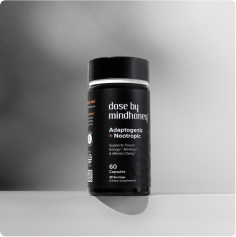ACTIVATING CREATIVITY: The Importance of Creativity (Part 2/3)
![Activating Creativity [2]](http://mindhoney.co/cdn/shop/articles/17_ef31a8a4-e285-46d2-8c53-20720da54ffc-505180_{width}x.png?v=1696982732)
Why should I bother with all this creativity stuff? I’m in a management role, not a creative one. Will this really help me?
Don’t ask me—ask Winston Churchill.
During his time in politics, Churchill created over 600 paintings.
None of them were especially good.
He didn’t paint to sell or for recognition.
He did it to clear his head.
In his book Stillness is the Key, Ryan Holiday explain’s Churchill’s commitment to painting:
“He had lived for forty years on planet earth consumed by his work and his ambition, but through painting, his perspective and perception grew much sharper. Forced to slow down to set up his easel, to mix his paints, to wait for them to dry, he saw things he would have previously blown right past. After the major powers of WWII met for the Casablanca conference in 1943, weighed down and numb after so much death, Churchill travelled five hours to paint a sunset in Marrakech. He returned to Britain re-energized and ready to finish the task.”
It isn’t just philosophers like Holiday who are enamored with creative hobbies.
It’s Nobel prize winning scientists too.
In his book Range, David Epstein explains how “Scientists inducted into the highest national academies are much more likely to have [creative hobbies] outside of their vocation…And those who have won the Nobel Prize are more likely still.”
Creativity helps even cutting edge scientists see the world differently, solve problems with greater perspective, and reset from their stressful work.
Inside and outside of work, creativity helps you reach your potential.
Are you an overachiever?
Continue to next part: Activating Creativity (Part 3)



